Statistics suggest that many of us who valiantly hid our gin in the back of the wardrobe on New Year’s Day have since slid back into comfortable old habits. But whether you’ve had a dry Jan wobble or you’re just walking extra slowly past the strong lagers in the supermarket, fear not. 2022 brings with it lots of great alcohol alternatives to help you cut down or cut out that sauce for the rest of January and beyond.
Oddbird Blanc de Blancs, 0% – Spirit.ed £9.95
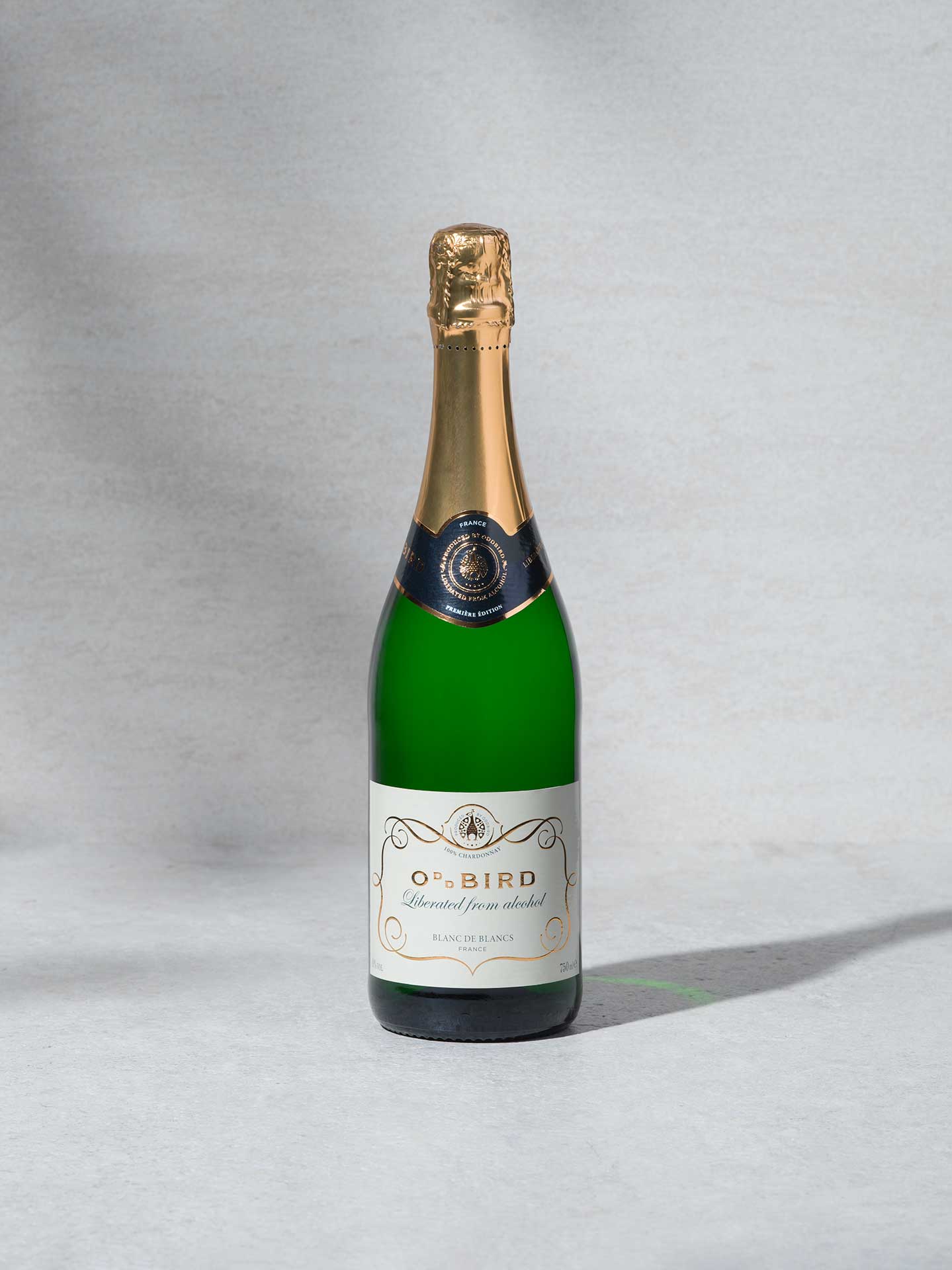
As a nation we’re probably a bit too into the idea that celebration must necessarily be accompanied by alcohol. But in fairness to us, opening a bottle of fizz to mark an occasion is a pretty lovely piece of human behaviour that’s not easily replicated by, say, putting on a big brew. For this reason, a properly good sparkling wine substitute has been an elusive goal of the burgeoning low-and-no industry since the beginning.
Many prototypical offerings closely resembled Shloer or Purdey’s and failed to deliver a suitably Champagne-y experience. But this Dry January, Swedish upstart Oddbird is offering a zero ABV sparkling Chardonnay that really hits the mark. The firm sources grapes from the Laguedoc, vinifies them, and then ages the resulting wine in oak for up-to 12 months. Distilling in a vacuum allows them to vaporise ethanol at low temperatures, removing it from the equation without breaking down the wine’s delicate flavour in the process. We can imagine there’s slightly more to it than that, but the good people at Oddbird are tight-lipped about their ‘unique, patented method’ so for now we can only speculate.
In the glass, Oddbird Blanc de Blancs is dry and pleasantly floral, with apple blossoms, almond pastries and lemon oil. Superb aperitif material and excellent with shellfish or goat’s cheese. Very impressive stuff.
High Point Ruby Aperitif, 0% – Direct £19.99

One of the great difficulties in creating a satisfying booze alternative is that so much of what makes our favourite drinks special is created during fermentation. Yeasts create alcohol, sure, but they are also largely responsible for the hint of mango in an Islay malt whisky, or the sense of chocolate and leather in a good Barolo. Without some kind of fermentation to create layers of flavour, that kind of complexity is hard to replicate. What a new wave of producers in the emerging no-and-low categories are attempting to do, is gain the benefits of fermentation and then remove the alcohol. Enter High Point and their booze-free pre-dinner sipper.
The Cornish newcomer’s Ruby Aperitif seems posed to fill a Campari/Aperol shaped space in the lives of the alcohol avoidant. It’s made by creating an alcoholic ferment with tea leaves, orange zest, pink peppercorns, wormwood and other botanicals – which then undergoes secondary fermentation to convert the ethanol present into acetic acid. Anyone recalling their GCSE science will know we’re in vinegar territory, but not to worry. Acetic acid-based cordials – otherwise known as shrubs – have been a fascination of bartenders for years and there are plenty of drinking vinegars enjoyed for health and recreational purposes around the world.
The menacingly red finished article is bracing and bitter, with a puckering tartness like dry cider. Just the sort of thing that gets you in the mood for dinner. A large measure served long with tonic water or soda, garnished with an orange wedge and a few olives, makes a very solid ersatz Spritz and excellent company for hard cheeses and cured meats. A welcome addition to the bar cart.
Portobello Road Temperance Spirit, 4.2% – Direct £23
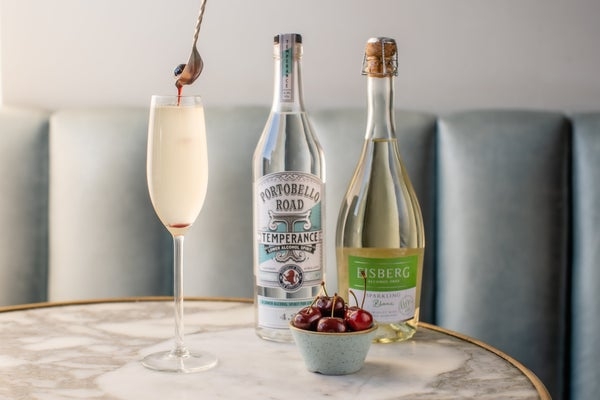
One of the founding members of London’s distilling renaissance, Portobello looms large in the modern gin scene. The firm’s three storey base in Notting Hill is still one of the best places in London to do that thing where you distil your own London dry. In addition to a rotating selection of limited-edition gins, Portobello Road also offers a Temperance Spirit that promises lots of juniper goodness without emotional swings or hangover. Yes, it’s not technically alcohol free, but a large measure of this topped up with tonic will deliver about 0.2 Great British units. Any drink you’d have to smash 20 of to get a buzz on definitely passes the Dry Jan test in this particular book.
The real act of wizardry here, is that Temperance Spirit has a bit of texture and dimension – something sorely missing from the various botanical waters currently jostling for position in boozeless booze market. This extra body gives it real potential as a cocktail ingredient and while it might struggle to stand up in a Martini, there’s lots of fun to be had throwing it into a Tom Collins or even subbing for gin in a classic Negroni. To make a basic Collins combine 50ml Temperance Spirit with 20ml each of fresh lemon juice and 1:1 sugar syrup and a dash of bitters if you have them to hand. Give everything a quick shake and strain into a highball glass full of ice. Top with soda and garnish with a lemon wedge and a little mint for luxury. When you’re reaching for a rewarding drink at the end of the working day a bit of ritual and presentation can make up for a lot of alcohol content.
Cloudwater Soda Pineapple & Yuzu, 0% – Direct £3
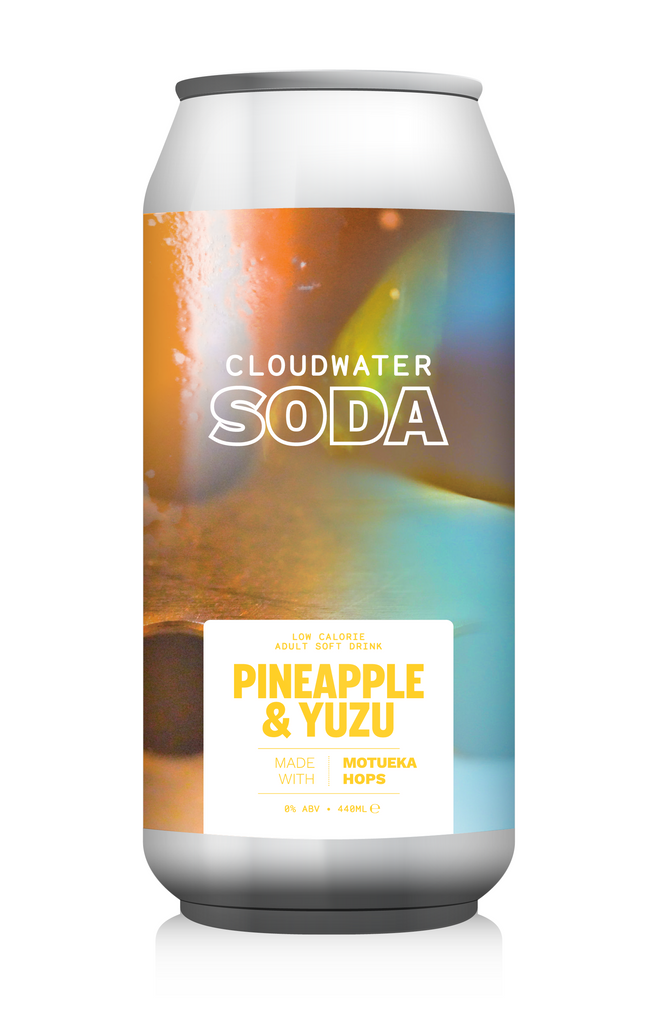
Manchester brewery Cloudwater has been a serious force in craft beer since arriving on the scene in 2014. Their carefully put together – often flamboyantly hoppy – creations are rightly revered in taprooms and bottle shops around the world. The team introduced a range of sodas in 2019, their intention being that these 0% cans would be served alongside their beers and thus extend the conviviality of the scene to those avoiding booze.
The Pineapple and Yuzu Soda is flavoured with citrussy Motueka hops. Or at least the most recent batch is – like all of Cloudwater’s brews the ingredients of choice change with the seasons. It tastes nicely tropical and slightly bitter, with herbal edge that balances the fruit nicely. As such, it does a fantastic job of standing in for a thirst-quenching tinny or pint when you really need such a thing without the cloying sweetness common to soft drinks. Hops, employed in brewing as a fixative and then a flavouring, provide acids and phenols that translate to greater depth and complexity on the palate. They’re one of the reasons a cold IPA works so much better with barbecued meat than a glass of lemonade and they’re employed fantastically here. Bring a bag of these to dinner with your friends and you’ll play quite happily amongst the beer drinkers without feeling left out.
Copenhagen Sparkling Tea Co. Rød, 0% and 5% options – Selfridges
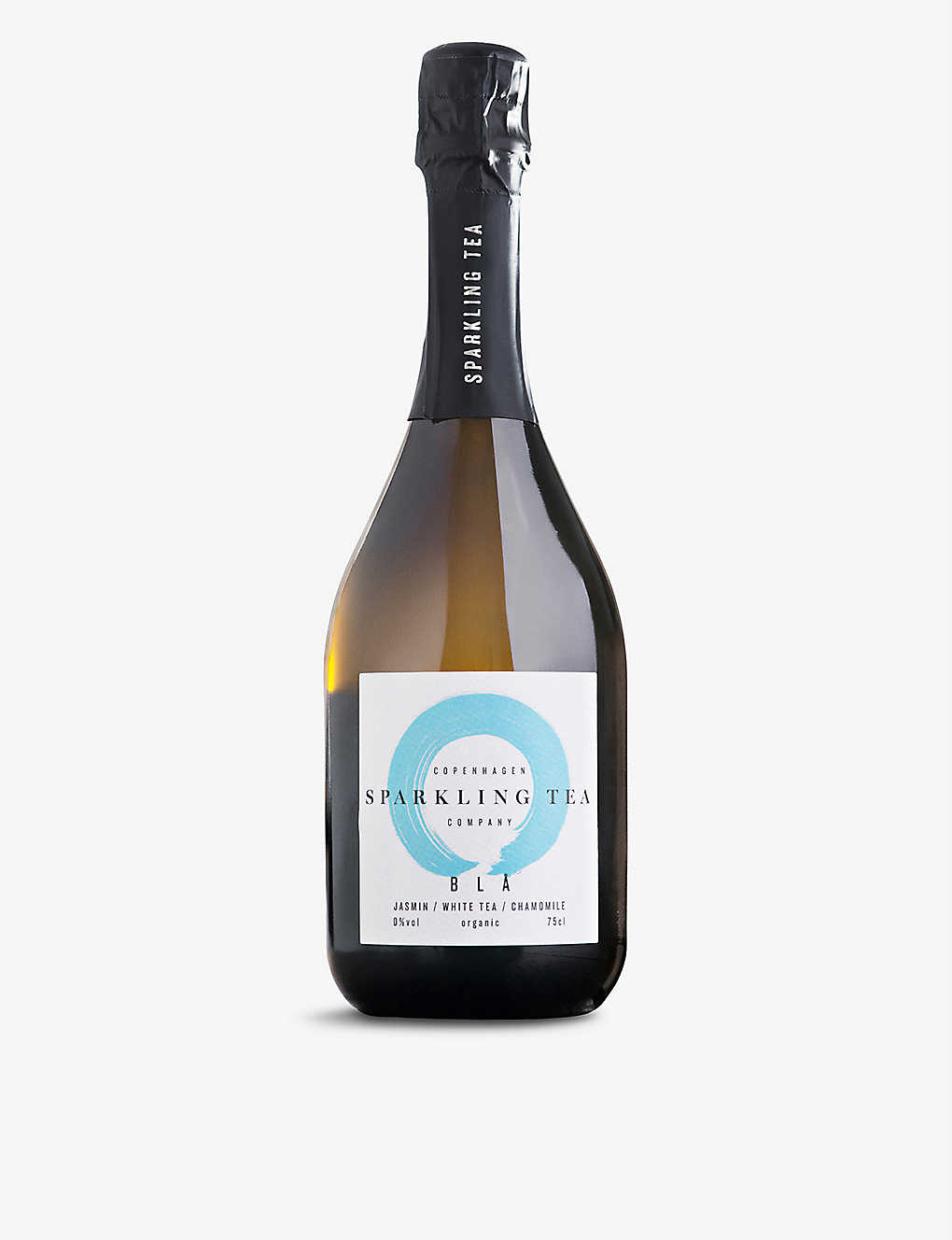
Millenia of tea culture has furnished us with lots of options for satisfying drinks that elevate or unwind. Many of the most prized varieties are subjected to aging, fermentation, and oxidation to create intense and nuanced flavours. Tea can also offer an alternative source of tannins, the slightly astringent compounds usually found in wine and sometimes in oak aged spirits. These are the drying elements that make a full-bodied red stand up so well to steak or mushrooms and form the basis of many great food pairings.
The Copenhagen Sparkling Tea Company blends leaves from various sources, including Oolong, Darjeeling and white needle teas to create handsomely presented fizz for the dining table. Rød is blended with hibiscus and a little white wine to bring it to 5% – though much of the range comes without the added alcohol. It’s a delicate and rose-coloured, offering strawberries, stone fruit, and a slice of white tea dryness on the palate. While it doesn’t quite have the acidity of the pink Champagne it seeks to stand alongside, that hint of tannin will play nicely with protein and fat, making this a nice match for cured fish. A flute should come in at roughly 0.6 of a unit so unlike pink Champagne it won’t sneak up on you. A tactical choice for anyone easing back into the hard stuff.
Big Drop Galactic Milk Stout, 0.5% – £1.50 Sainsbury’s
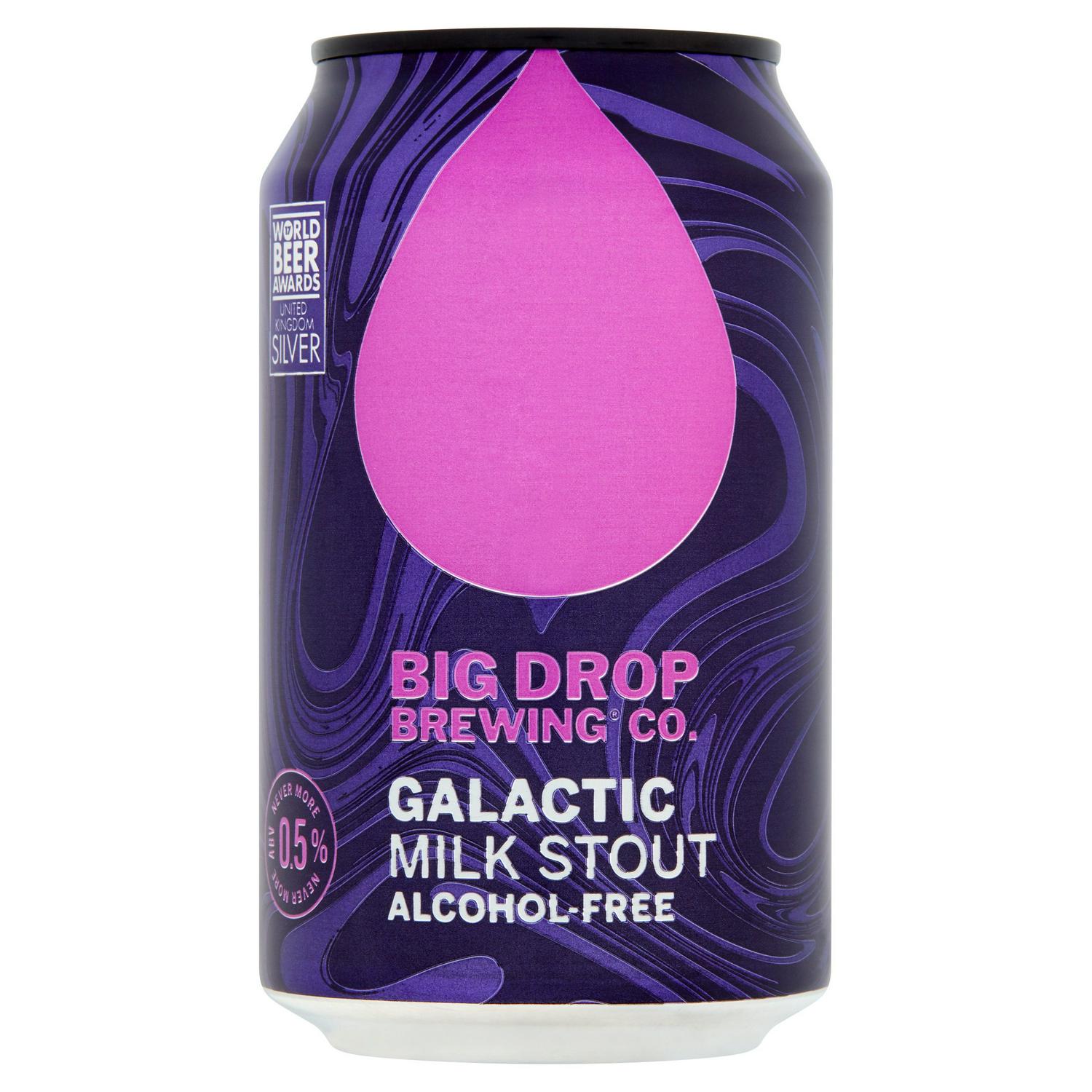
Some five years out from its debut, Big Drop’s signature milk stout remains a triumph of modern brewing. This is not just a good beer for Dry January, it is a good beer by any measure – nicely textured and thick with flavours of chocolate, coffee, and toasty malt. It’s a style that’s tailor-made for the colder months and fortifying enough to beat the chill, even without a hefty ABV. The further good news is that due to the crossing over of craft beer into the mainstream you can pick one up at your local supermarket.
In pretty recent memory Britain’s alcohol-free beer repertoire was populated by insipid lager facsimiles filled with gas and unfermented sugar. But what outfits like Big Drop prove, is that quality beers brewed to lower strengths deserve to be a part of our brewing traditions just as much as stronger styles. Not as substitutes for the real thing but true alternatives.
As far as food pairing goes, stouts have always offered great options. Coffee-type-flavours work fantastically with ham or salt-beef, while the rich maltiness of a good dark beer makes a superb counterpoint for the sweet salinity of a rock oyster. Who said cutting back on booze means you can’t be decadent?

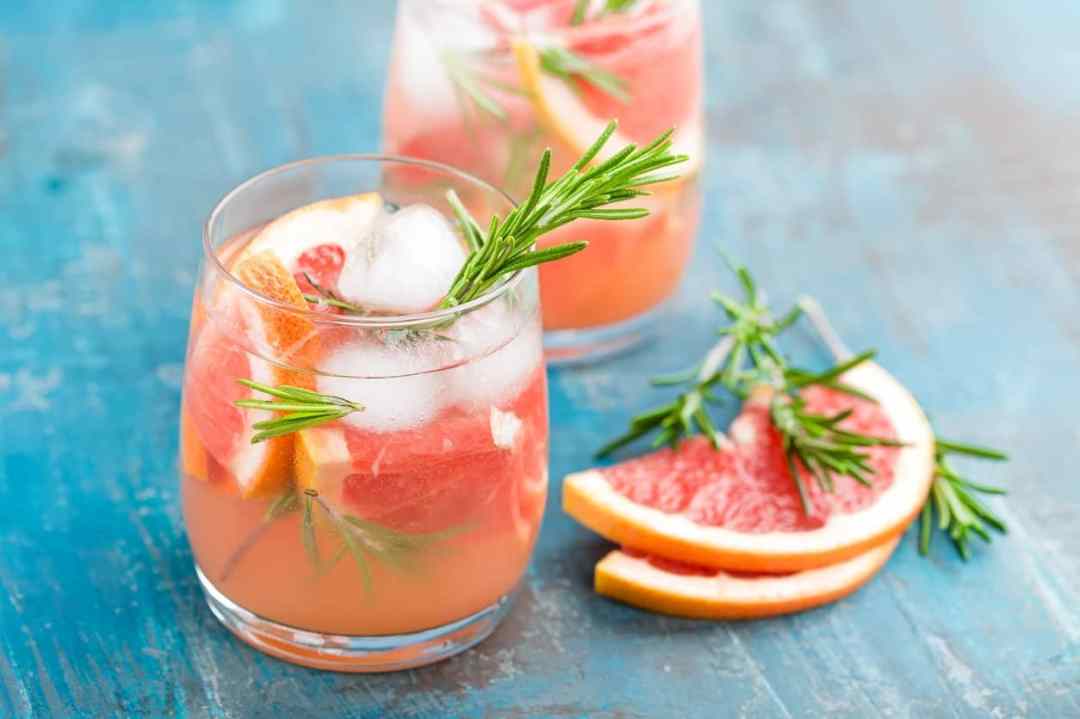
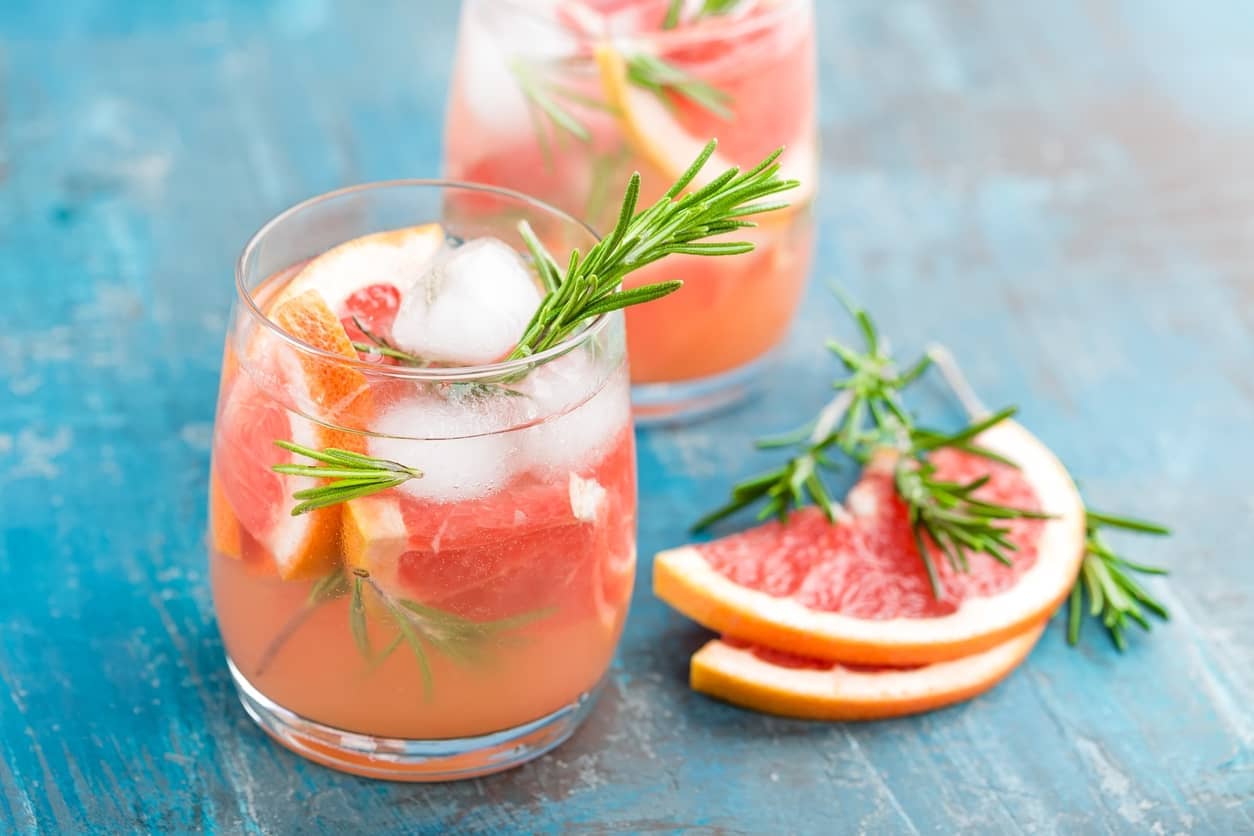




Comments